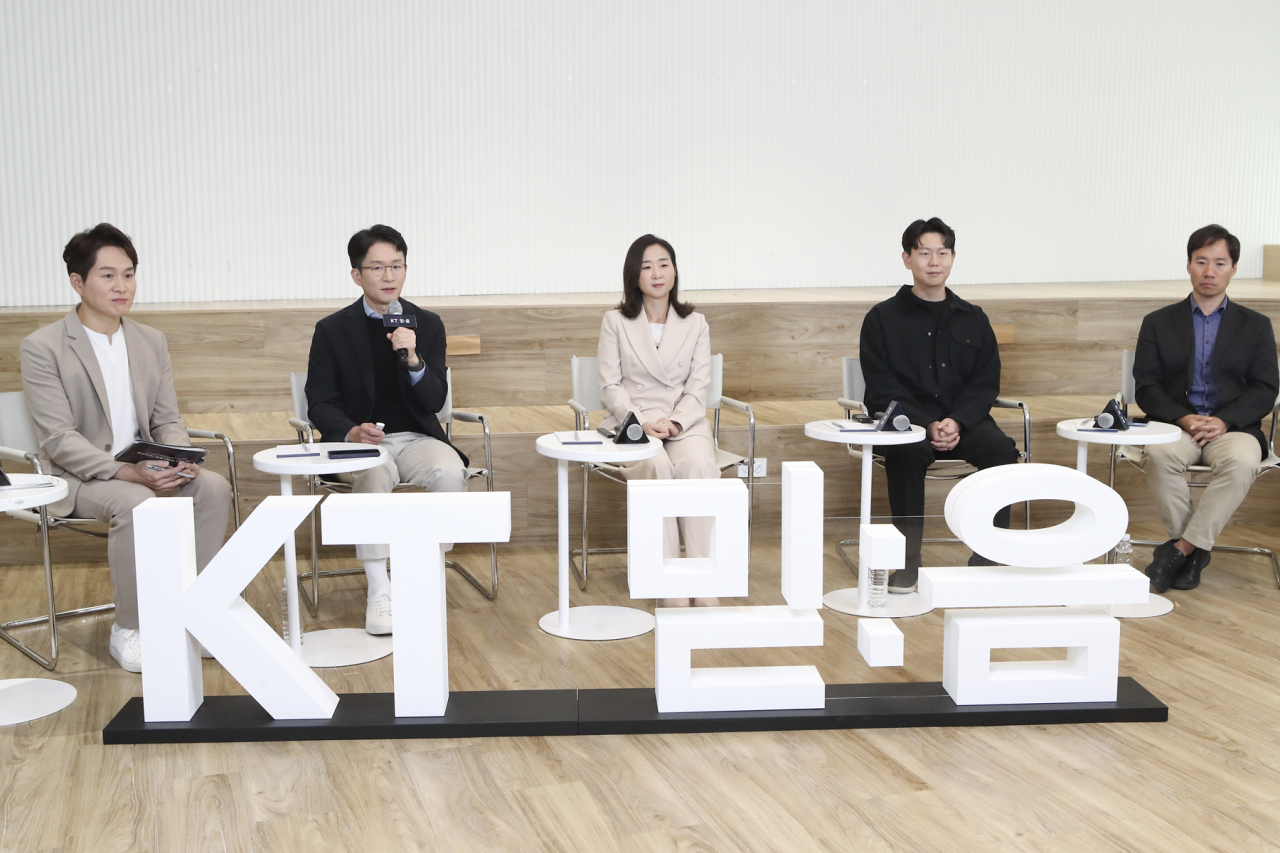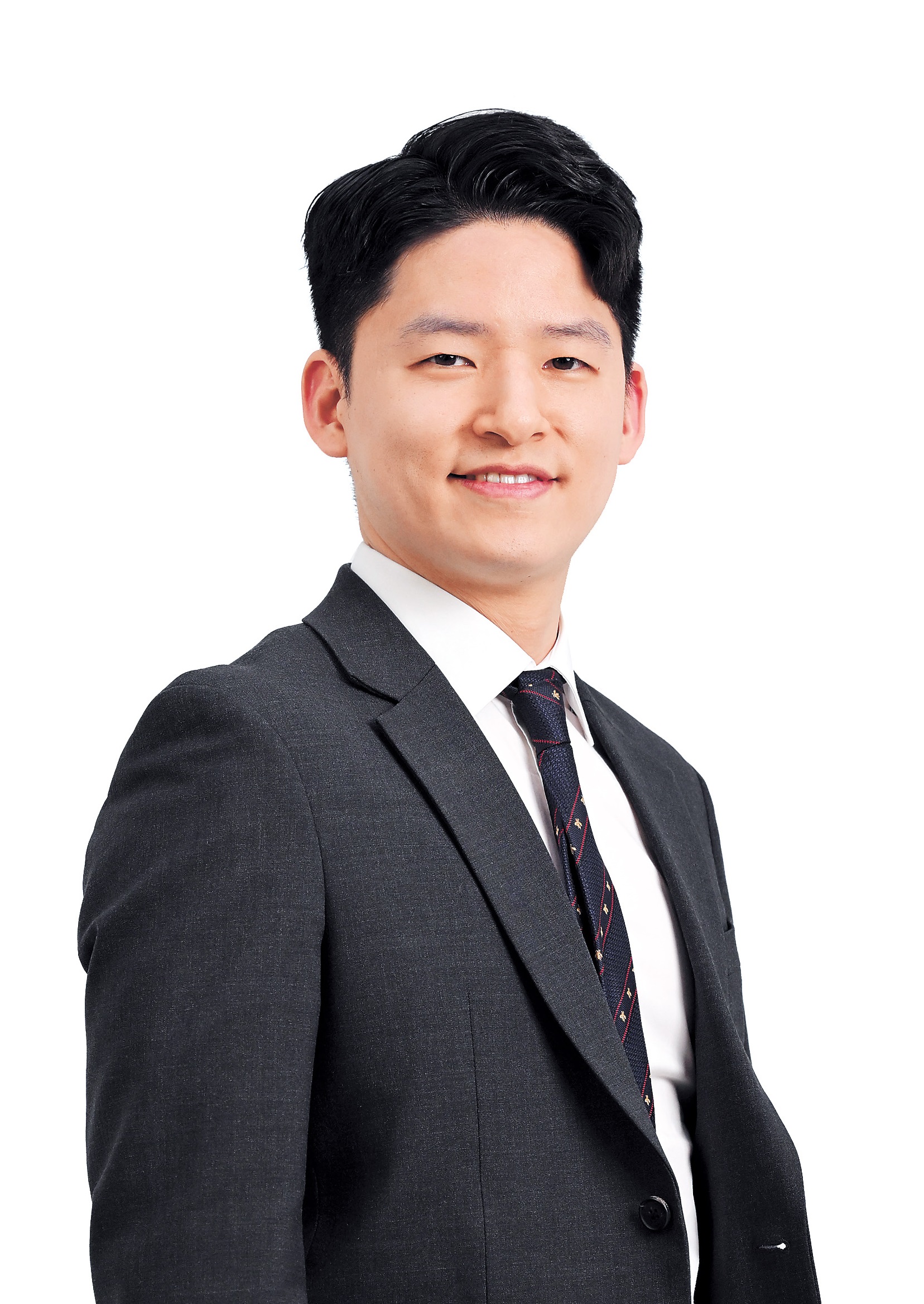KT unveils large language model Mi:dm for corporate customization
By Moon Joon-hyunPublished : Oct. 31, 2023 - 16:09

South Korean telecommunications giant KT Corp. on Tuesday unveiled Mi:dm, a customizable large language model aimed at corporate clients looking to develop their own advanced AI services in the booming field of generative AI technologies.
The name Mi:dm is based on the word "mideum," which means "belief" in Korean. Unlike generic models such as OpenAI's GPT, KT posits that Mi:dm allows companies to incorporate their own specialized datasets to produce tailor-made AI products.
Coming in four different service plans -- lightweight basic, fast standard, efficient premium and high-performance expert -- the new model offers different computational capacities that range from under 10 billion to over 200 billion parameters.
The core of Mi:dm is its "reliable package," which combines features such as Document AI, Search AI and FactGuard AI to improve the model's overall efficiency and accuracy. FactGuard AI was particularly emphasized during the conference for its capacity to minimize the generation of false information, a phenomenon known as hallucination, as Mi:dm focuses on using fine-tuned data from expert domains.
According to the company, the technology can reduce hallucination by up to 70 percent, compared to a model that the company did not specify.
On top of these models, the company has developed Mi:dm Studiov -- a user-friendly interface for enterprises designed to assess a variety of Mi:dm services.
Choi claimed that KT aims to undercut domestic competitors by offering its AI solutions at prices 20 to 30 percent lower. He said that KT Cloud’s existing customer base of 650,000 companies, gives it a competitive edge in providing tailored LLM-based services.
“Feedback from our enterprise customers has been and will play a crucial role in shaping the development and trajectory of Mi:dm,” said Choi Joon-ki, the head of the AI and big data business unit at KT.
KT also discussed its prominent partnerships with domain-specific startups such as B2B AI platform provider Upstage and educational AI applications like Qanda.
Qanda is working on overcoming major obstacles, such as latency, costs and accuracy, that currently hinder its goal of creating a reliable AI math tutor. Lee Yong-jae, Qanda’s CEO, stressed the need for an AI tutor capable of truly understanding a student's learning patterns.
Both KT Corp. and Qanda aim to work together by specializing the model in the Korean language and high school mathematics. Lee expects the collaboration will take advantage of Qanda's rich educational data and finely-tuned algorithms to achieve this goal.
“We are excited that Mi:dm will bring scalability and efficiency, given its experience in managing millions of daily queries and a robust technological infrastructure,” Lee said.
Bae Soon-min, senior vice president at KT and head of the AI2XL research lab, shared more real-life applications and potential uses for Mi:dm.
For instance, small businesses in areas like interior decoration could deploy the basic model to summarize client calls through their own customized AI model. Alternatively, gaming companies might opt for the standard model, adapting it through additional training to create unique non-player characters. Local governments could use Mi:dm's efficient premium model to assist citizens in navigating a complex array of over 400 types of welfare benefits.
Regarding funding, Choi noted that while the initial investment in GPU farms is substantial, a break-even point is anticipated within about three years, given the cases of implementing large-scale IT system services in other Korean enterprises.
On the international front, KT Corp. has also recently partnered with Thailand's Jasmine Group to develop a Thai-based large language model. This move is part of the company's strategy to create AI solutions tailored to languages that are currently underrepresented in existing large language models.
"We've designed Mi:dm to be versatile and scalable. Whether you're a small business needing basic AI support or a large corporation requiring a high-performance model, Mi:dm has a solution designed specifically for you," said Bae.



















![[Today’s K-pop] Treasure to publish magazine for debut anniversary](http://res.heraldm.com/phpwas/restmb_idxmake.php?idx=642&simg=/content/image/2024/07/26/20240726050551_0.jpg&u=)